What We offer you
Sectors
At tMA, we deliver innovative and impactful solutions across key sectors to empower communities, foster development, and promote sustainability. From improving agriculture and food security through farmer training and market linkages to strengthening governance and democracy by enhancing civic engagement and institutional capacity, our services are tailored to meet diverse needs.
Agriculture & Food Security
tMA works to improve agricultural productivity and food security by supporting smallholder farmers, enhancing supply chains, and promoting sustainable practices.
Key activities include:
1. Training farmers in modern agricultural techniques.
2. Developing market linkages to improve access to buyers.
3. Supporting food storage and distribution infrastructure.
4. Conducting climate resilience assessments for agricultural systems.
Key activities include:
1. Training farmers in modern agricultural techniques.
2. Developing market linkages to improve access to buyers.
3. Supporting food storage and distribution infrastructure.
4. Conducting climate resilience assessments for agricultural systems.
Cross-Cutting
Our cross-cutting initiatives address themes that affect multiple sectors, such as:
1. Gender equality and social inclusion.
2. Technology and innovation for development.
3. Climate change adaptation and mitigation.
4. Institutional strengthening for governance and transparency.
1. Gender equality and social inclusion.
2. Technology and innovation for development.
3. Climate change adaptation and mitigation.
4. Institutional strengthening for governance and transparency.
Democracy & Governance
tMA supports democratic processes and good governance by working with government institutions, civil society, and communities.
Services include:
1. Capacity building for public institutions.
2. Promoting civic engagement and voter education.
3. Strengthening judicial and legislative systems.
4. Advocating for anti-corruption measures.
Services include:
1. Capacity building for public institutions.
2. Promoting civic engagement and voter education.
3. Strengthening judicial and legislative systems.
4. Advocating for anti-corruption measures.
Economic Growth
We contribute to sustainable economic growth by fostering entrepreneurship, improving workforce skills, and supporting small and medium-sized enterprises (SMEs).
Key focus areas include:
1. Business development services for startups and SMEs.
2. Vocational training programs to increase employability.
3. Market systems development to promote local trade.
4. Encouraging investment in key growth sectors.
Key focus areas include:
1. Business development services for startups and SMEs.
2. Vocational training programs to increase employability.
3. Market systems development to promote local trade.
4. Encouraging investment in key growth sectors.
Education
Our education initiatives aim to enhance learning outcomes and access to quality education.
Key activities include:
1. Teacher training and curriculum development.
2. Improving school infrastructure, particularly in rural areas.
3. Promoting early childhood education.
4. Facilitating digital literacy programs for students and teachers.
Key activities include:
1. Teacher training and curriculum development.
2. Improving school infrastructure, particularly in rural areas.
3. Promoting early childhood education.
4. Facilitating digital literacy programs for students and teachers.
Energy & Infrastructure
tMA supports the development of energy solutions and infrastructure projects to meet the needs of growing communities.
Focus areas include:
1. Promoting renewable energy adoption, such as solar power.
2. Developing rural electrification programs.
3. Supporting infrastructure for transportation and communication networks.
4. Conducting feasibility studies for public-private partnerships in infrastructure development.
Focus areas include:
1. Promoting renewable energy adoption, such as solar power.
2. Developing rural electrification programs.
3. Supporting infrastructure for transportation and communication networks.
4. Conducting feasibility studies for public-private partnerships in infrastructure development.
Environmental Protection
We implement programs aimed at conserving natural resources and promoting sustainable environmental practices.
Key initiatives include:
1. Supporting community-based conservation efforts.
2. Promoting reforestation and afforestation projects.
3. Conducting environmental impact assessments.
4. Advocating for policies that protect biodiversity and combat climate change.
Key initiatives include:
1. Supporting community-based conservation efforts.
2. Promoting reforestation and afforestation projects.
3. Conducting environmental impact assessments.
4. Advocating for policies that protect biodiversity and combat climate change.
Health
tMA enhances healthcare systems and improves access to quality health services.
Key focus areas include:
1. Supporting maternal and child health programs.
2. Strengthening health systems through capacity building.
3. Promoting disease prevention and vaccination campaigns.
4. Conducting health data analysis to inform policy and programs.
Key focus areas include:
1. Supporting maternal and child health programs.
2. Strengthening health systems through capacity building.
3. Promoting disease prevention and vaccination campaigns.
4. Conducting health data analysis to inform policy and programs.
Humanitarian Assistance
We provide support in emergency and post-crisis situations to ensure the well-being of affected populations.
Key activities include:
1. Coordinating disaster response and recovery efforts.
2. Distributing food, water, and medical supplies.
3. Supporting displaced populations through shelter and livelihood programs.
4. Facilitating community resilience programs for disaster preparedness.
Key activities include:
1. Coordinating disaster response and recovery efforts.
2. Distributing food, water, and medical supplies.
3. Supporting displaced populations through shelter and livelihood programs.
4. Facilitating community resilience programs for disaster preparedness.
Water & Sanitation
tMA focuses on improving access to clean water and sanitation services to enhance health and quality of life.
Key initiatives include:
1. Developing water infrastructure in underserved areas.
2. Promoting hygiene education in schools and communities.
3. Supporting the establishment of water user associations for sustainable management.
4. Conducting water quality assessments and ensuring compliance with health standards.
Key initiatives include:
1. Developing water infrastructure in underserved areas.
2. Promoting hygiene education in schools and communities.
3. Supporting the establishment of water user associations for sustainable management.
4. Conducting water quality assessments and ensuring compliance with health standards.
